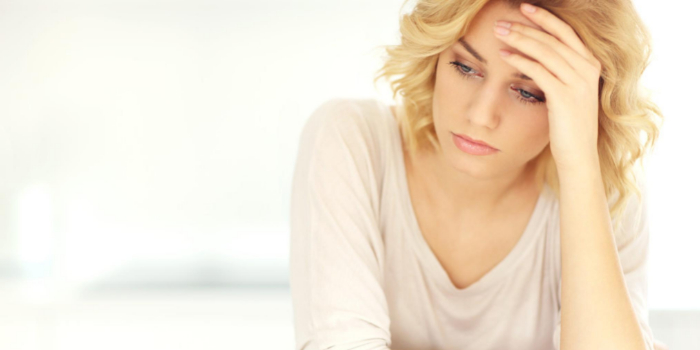Are you suffering from anxiety and depression? You’re not alone…
I was amazed to discover in a 2021 survey featured in Statista that roughly 6 in 10 women aged 20+ have never had a mental health screening nor discussed depression with their doctor.
That’s an alarming fact…
Anxiety and depression are familiar conditions but they are also amongst the most serious illnesses in the world.
The highest stress levels are reported from these different age groups:
- Millennials (ages 18 yrs to 33 yrs)
- Gen Xers (ages 34 yrs to 47 yrs)
Both these age groups report stress levels higher than they consider healthy:
- Baby Boomers (48 yrs to 66 yrs)
- Matures (67 yrs and older)
Stress has also increased for a considerable number of people, regardless of age.
According to the latest report from the American Psychological Association Millennials and Gen Xers are most stressed by WORK, MONEY and JOB STABILITY.
While Boomers and Matures are more likely to be concerned with HEALTH ISSUES affecting their families and themselves.
Work and job security is a BIG WORRY for most generations:
- 76% of Millennials worry about work
- 65% of Gen Xers worry about work
- 62% of Baby Boomers worry about work
- 39% of Matures worry about work
However, anxiety and depression can be a normal part of life. Just think about a time when you had to study for an exam or had issues in your relationships or at work.
But, when anxiety and depression seem to come from nowhere and the symptoms last for weeks, then they need to be addressed.
Sometimes anxiety and depression can be so bad that it keeps people house-bound and away from people. They are unable to undertake normal everyday tasks.
More importantly, people experiencing anxiety symptoms should know that it is a common disorder and is curable.
So let’s look at ways to relieve your feelings of anxiety and depression
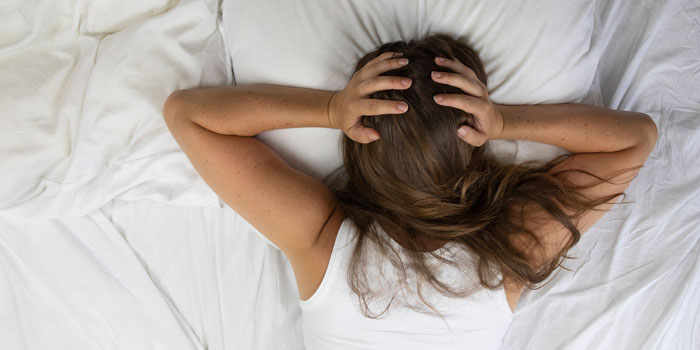
Disclosure: This post may contain affiliate links. Read my disclosure page for more info.
What are the symptoms of anxiety?
- Palpitations
- Shortness of breath
- Increased sweating
- Shaking
- A feeling of unreality
- Chest pain
- Nausea or stomach discomfort
- Feeling of light-headedness
- The feeling of being detached from oneself
- Fear of losing control or going crazy
- Fear of dying
- Feeling of impending doom
Where to get help?
If your feelings are very strong and prolonged then you should consider contacting a professional therapist. I’m not a therapist and this article is informative only.
However, you may want to take a look at The Anxiety & Phobia Workbook by Edmund J. Bourne PhD in the first instance.
Packed with the most effective skills for assessing and treating anxiety, this evidence-based workbook contains the latest clinical research.
It includes skills for quieting fears and taking charge of your anxious thoughts, including:
- Relaxation and breathing techniques
- Ending negative self-talk and mistaken beliefs
- Imagery and real-life desensitization
- Lifestyle, nutrition, and exercise changes
Depression, on the other hand, is a serious medical condition that affects the body, mood, and thoughts. It affects the way a person eats and sleeps, self-concept, and the way one thinks about things.
A depressive disorder is not the same as just a passing low mood.
A person with depressive disorder usually isn’t able to pull themselves out of this condition. In short, without treatment, their symptoms can last for weeks to years.
The treatment usually involves medications and/or temporary psychotherapy, which can be more helpful with depression sufferer.
You may also like:
- 5 Easy Ways to Get Unstuck & Start to Feel More Positive
- How to Start a Gratitude Journal Today – 5 Best Books
- How to get Rid of Social Media Envy – 5 Top Tips
- Procrastination – 5 Really Important Tips to Put a Stop to It
- 7 Habits of Confident Women You Need to Know
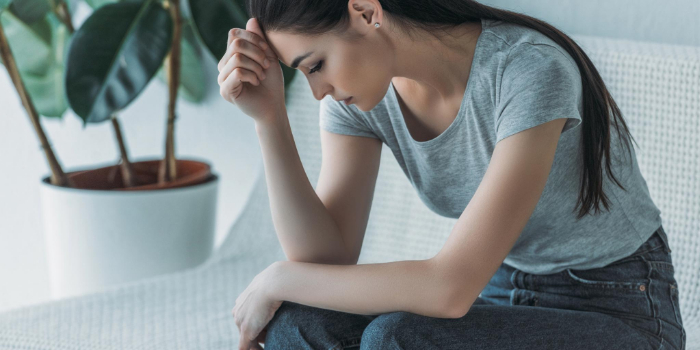
What are the symptoms of depression?
- Persistent sad, anxious, or empty mood
- Feelings of hopelessness, pessimism
- Decreased energy, fatigue
- Loss of interest in hobbies or activities that were once enjoyed, including sex
- Guilty feelings, worthlessness, helplessness
- Restlessness and irritability
- Difficulty concentrating, remembering, making decisions
- Appetite and/or weight changes
- Trouble sleeping or oversleeping, early morning awakening
- Thoughts of death or suicide, or suicide attempts
- Persistent physical symptoms such as headaches, digestive disorders, and chronic pain that does not respond to routine treatment.
Above all, anxiety and depression are two different conditions. But they are the same in the sense of the intensity of how serious these conditions can be.
They are among the most common and most treatable mental illnesses in the world.
Anxiety condition occurs for a specific reason and has an underlying basis for why it persists. Education is an important way to help attain an anxiety cure.
You may find this book helpful Herbal Medicine Natural Remedies: 150 Herbal Remedies to Heal Common Ailments. This book offers the most effective natural remedies that can be used to treat common ailments.
Above all, without the risk of unpleasant or potentially harmful side effects that pharmaceuticals can cause.
Get help if you’re feeling anxiety and depression
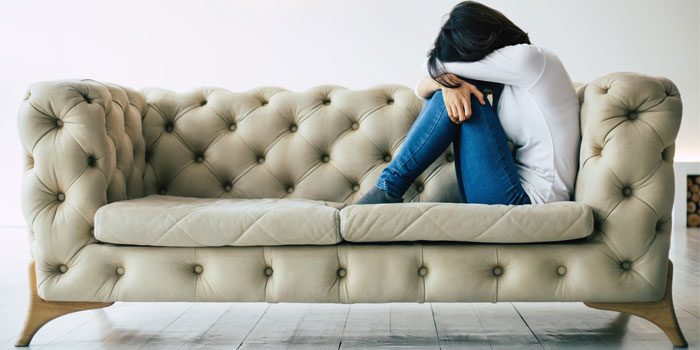
Take a look at these 7 effective solutions to dealing with anxiety and depression:
TABLE OF CONTENTS ->>
1. Relaxation techniques
Most people suffering from anxiety have trouble relaxing. However, learning how to release muscle tension is an important anxiety cure.
Relaxation techniques include:
- regular muscle relaxation
- meditation
- abdominal breathing
- isometric relaxation exercise
2. Proper breathing techniques
Physical symptoms of anxiety can be triggered by hyperventilation or rapid breathing. This raises oxygen levels and reduces the amount of carbon dioxide in the blood.
Breathing from the diaphragm, and not from their chest, will help to prevent hyperventilation.
3. Cognitive therapy
Cognitive Therapy helps in altering patterns of thinking and beliefs that are associated with and trigger anxiety.
Basically, what this means is ideas can trigger thoughts. Which then triggers feelings, results in manifest through action.
Cognitive therapy strategies should include:
- rational self-talk
- training on attention
- reality testing cognitive challenging
- cognitive restructuring
Above all, monitoring your self-talk, challenging fears and beliefs, and checking out the negative thoughts in terms of their reality, will help.
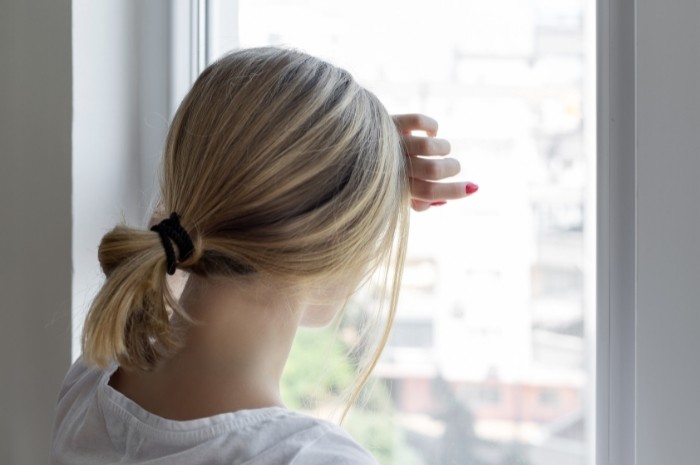
4. Behavior therapy
Behavior therapy or Exposure therapy involves deliberately confronting your fears in order to desensitize yourself. Exposure helps you to redefine the danger or fear aspect of the situation or trigger.
5. Medication
Medication for anxiety and depression should be viewed as a short-term measure, not a solution to anxiety disorder.
Studies show that psychological therapies are much more effective than drugs in managing anxiety disorder in the long run.
6. Dietary adjustments can help feelings of anxiety and depression
Inadequate intake of vitamin B and calcium can worsen anxiety symptoms. Nicotine, caffeine, and stimulant drugs should all be avoided.
Moreover, they can all trigger your adrenaline glands to release adrenaline, one of the main stress chemicals.
7. Exercise can also help feelings of anxiety and depression
Exercise is great to relieve the symptoms of anxiety and depression as it burns up stress chemicals and promotes relaxation.
Your aim is to do some physical activities at least 3 to 4 times a week. It’s best to vary your activities to avoid boredom.
There are several effective anxiety cures. But, to sum up, the level of recovery depends on the participation and willingness of the person with the condition.
To sum up this important article, the sooner you can get help, support and treatment for your feelings of anxiety and depression, the best chance you’ll have to return to your normal health.

